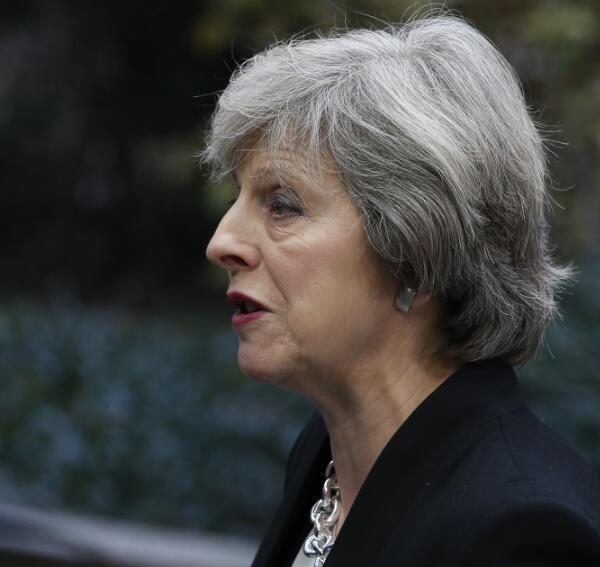May's election call a sign of practical politics
- By Sumantra Maitra
 0 Comment(s)
0 Comment(s) Print
Print E-mail China.org.cn, April 27, 2017
E-mail China.org.cn, April 27, 2017
|
|
|
Prime Minister Theresa May said she wouldn't and then she did – calling a general election. There are, however, strong reasons why she has done so. [Xinhua file photo] |
The election on June 8 falls right in the middle of the French and German elections. These three votes over a span of three months will essentially decide the fate of Europe and the future direction it will take.
"It was with reluctance that I decided the country needs this election, but it is with strong conviction that I say it is necessary to secure the strong and stable leadership the country needs to see us through Brexit and beyond," May told journalists.
This is obviously a calculated move to gain a predicted lead over the opposition Labour Party. The Conservatives are 20 points ahead of Labour right now. In terms of personal popularity, May leads her Labour challenger Jeremy Corbyn 50 percent to 14.
The reasons of a general election are threefold. First is crushing Labour. May and party elders believe they will not have a better opportunity to destroy socialism for a generation. If the Brexit talks were underway and the effects (positively negative) start to show, then it would be difficult to persuade the floating voters on either side.
Right now, an election campaign could focus on the personality of the two main leadership candidates, where May, as just mentioned, is far ahead.
Second, May needs flexibility over the Scottish issue. The majority of Scots don't want a second independence referendum, even when they are unhappy with the overall direction of the country. This snap election will force Scottish First Minister Nicola Sturgeon to decide on which side she wants to be, rather than blaming everything on Westminster.
Therefore, this will essentially be a referendum on whether there should be another Scottish referendum. In one simple move, May has forced both Labour and Scottish Nationalist Party to show their cards, and decide on their negotiating positions and manifestoes vis-à-vis Brexit. Since majority of the English working class supports Brexit, and majority of Scots are risk-averse when it comes to the U.K, future, EU membership and NATO, it plays on the strengths of May's government.
The final target is internal Conservative squabbles. The practical side argues that there should be a smooth Brexit, with the future of the Europeans working in the U.K. secured, and a smooth transition when it comes to trade. There has been hints that May herself is willing to smoothen her stance during the negotiations.
The Conservative ideologues, however, are pushing for a hard Brexit, and scorched earth policies. Because May herself is unelected as leader, she couldn't possibly be hardline against her own party's hardliners, and therefore it was understandable she will seek a mandate.
In fact, this might prove the exact opposite of what pundits are predicting. It might very well be possible that May is seeking a supermajority so she can carry on with her own version of Brexit, which is a smooth soft departure, rather than a cliff edge.
This is prudent. The realities of negotiations are going to be tough, and May and her cabinet understands that. The single market as well as the fate of hundreds of thousands of Britons who are in Europe, as well as Europeans who live in the Britain and essentially run the U.K. economy, will be key considerations.
As the Financial Times rightly notes, the May government has shown signs of realism since it triggered article 50, and this is to be welcomed. One would imagine this is a continuation of practical politics.
Sumantra Maitra is a columnist with China.org.cn. For more information please visit:
http://china.org.cn/opinion/SumantraMaitra.htm
Opinion articles reflect the views of their authors only, not necessarily those of China.org.cn.






